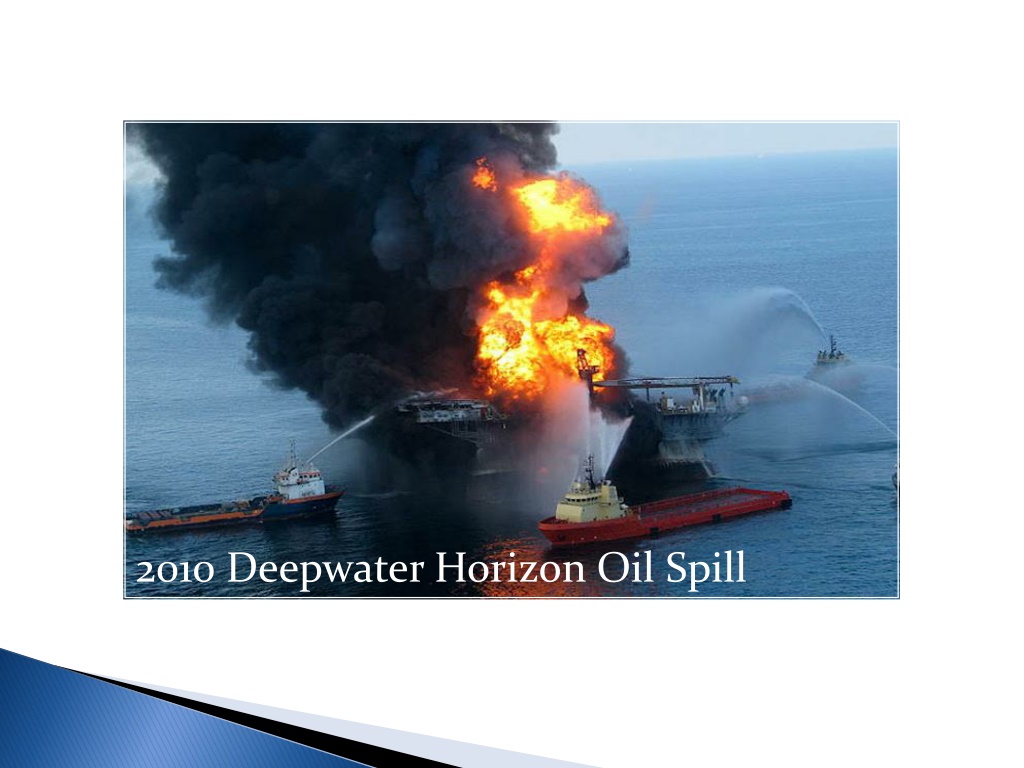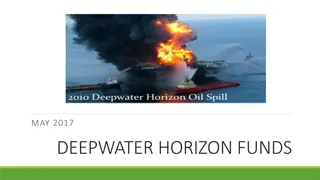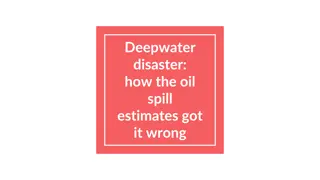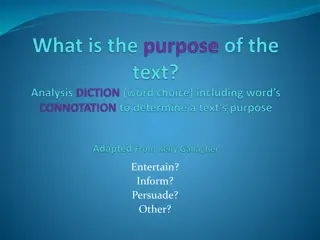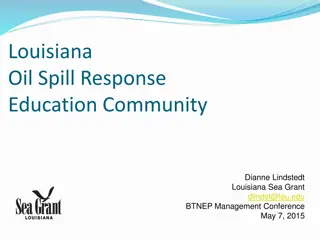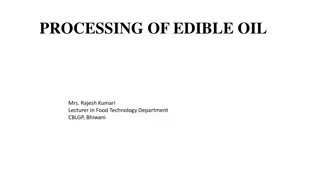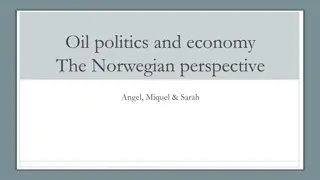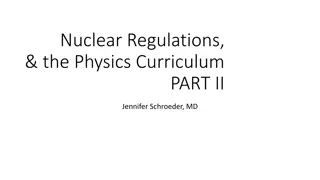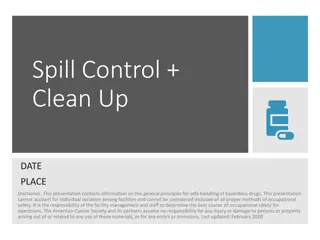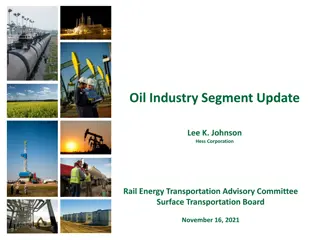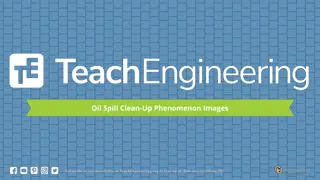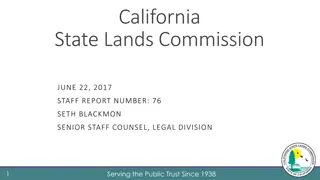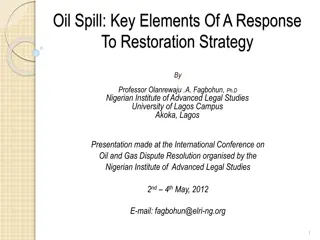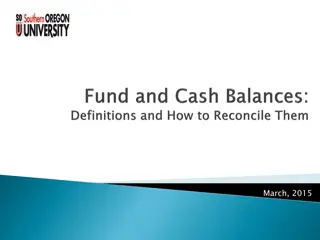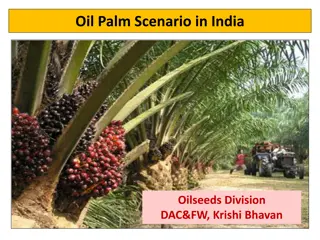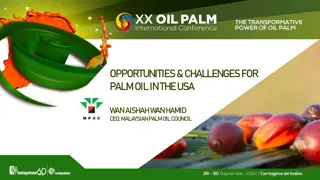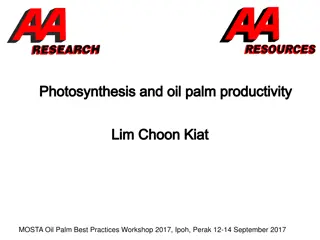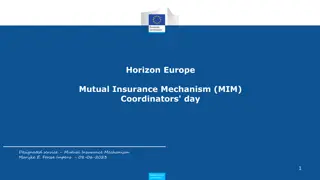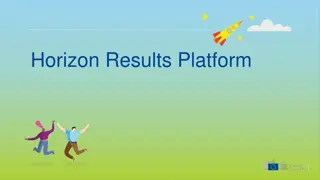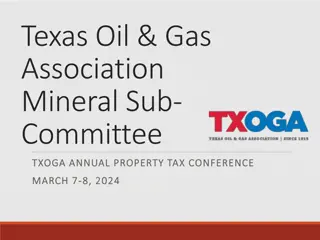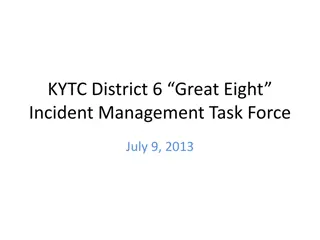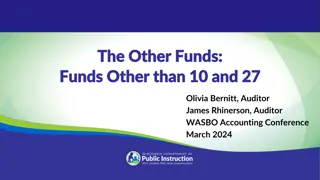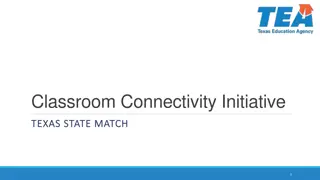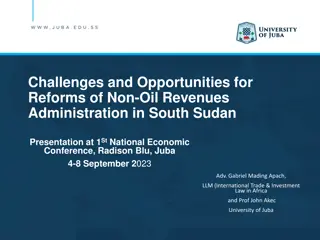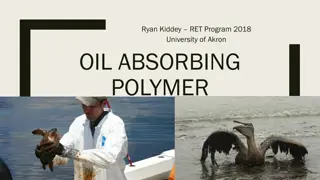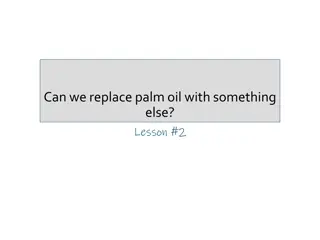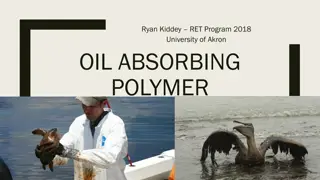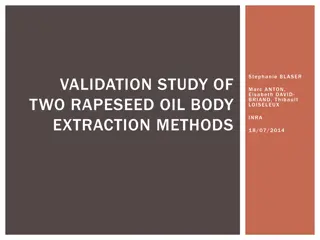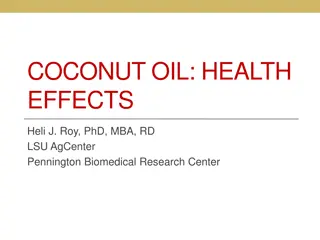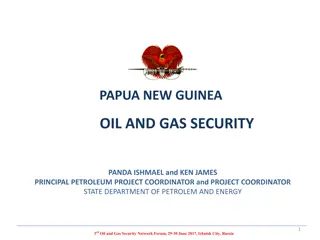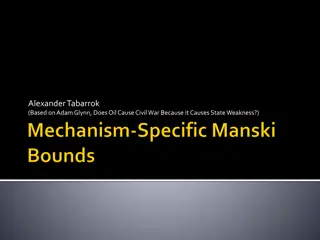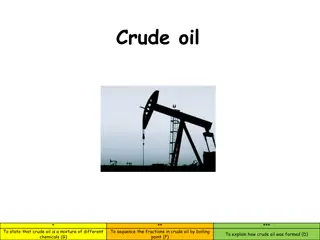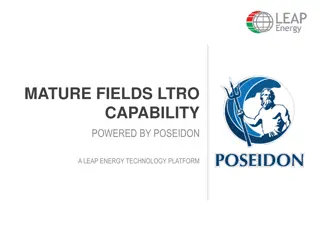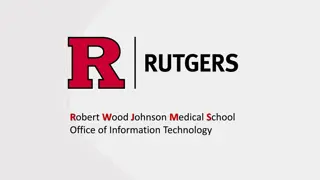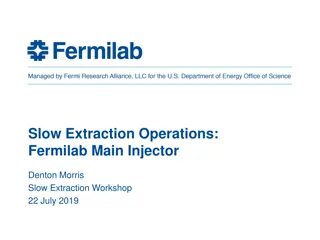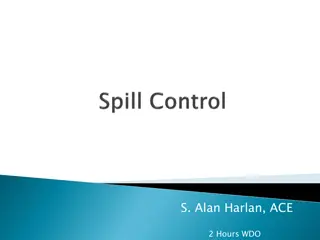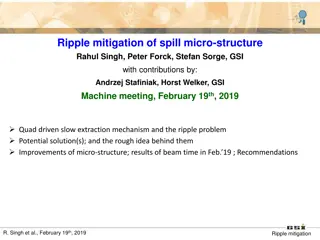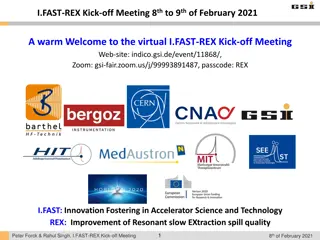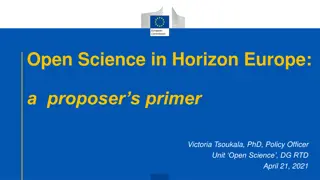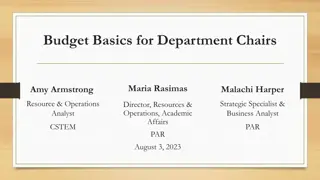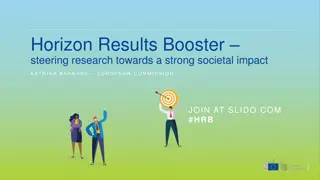Management of Funds from the 2010 Deepwater Horizon Oil Spill in Texas
Texas has access to funds from the Deepwater Horizon Oil Spill through the Gulf Environmental Benefit Fund, Natural Resource Damage Assessment, and the RESTORE Act. The National Fish and Wildlife Foundation allocates funds for Texas projects, while BP provides funding for early restoration projects. Additional funds from a settlement with BP will support NRDA projects in Texas, managed by state and federal trustees. The process ensures the completion of activities supported by these funds.
Download Presentation

Please find below an Image/Link to download the presentation.
The content on the website is provided AS IS for your information and personal use only. It may not be sold, licensed, or shared on other websites without obtaining consent from the author. Download presentation by click this link. If you encounter any issues during the download, it is possible that the publisher has removed the file from their server.
E N D
Presentation Transcript
DEEPWATER HORIZON OIL SPILL FUNDS AND IMPLEMENTATION of FEDERAL RESTORE ACT House Natural Resources April 26, 2016 TCEQ COMMISSIONER TOBY BAKER 2
Thank you for the invitation to speak with you this morning about the 2010 Deepwater Horizon Oil Spill and Texas implementation of the federal RESTORE Act, adopted in response to the disaster. From this tragedy we now have the opportunity to address the needs and interests of the Texas Gulf Coast region through RESTORE funds. 3
As the result of the Deepwater Horizon Oil Spill (DWH), Texas has access to three funding sources: Gulf Environmental Benefit Fund (NFWF); Natural Resource Damage Assessment (NRDA); and Resources & Ecosystems Sustainability, Tourist Opportunities & Revived Economies of the Gulf Coast States Act of 2012 (RESTORE). 4
NFWF will receive $2.54 billion from the U.S. Department of Justice s criminal plea agreement with BP and Transocean. NFWF is responsible for allocating and distributing these funds. NFWF selects Texas projects in consultation with the state s Natural Resource Trustee agencies: TPWD; GLO; and TCEQ. 5
NFWF funding for Texas 2013 - 2018: $203 million. Funding for Texas projects to date: $70.6 million. Anticipated funding for 2016: $11 million. 6
Emergency and Early Restoration Projects: BP agreed to provide initial funding to support early restoration projects across the Gulf Coast states. Total Early Restoration funding for Texas projects to date: $50.35 million. 7
Through a settlement with BP, an additional $238 million will be available for NRDA projects in Texas. State and Federal Trustees for NRDA-DWH will develop a plan to distribute those funds. Texas Trustees: TPWD; GLO; and TCEQ Federal Trustees: NOAA; DOI; EPA; and USDA. The NRDA process continues until all activities supported by these funds are completed. 8
With passage of the RESTORE Act in 2012, Congress established the Gulf Coast Restoration Trust Fund (Fund). 80% of civil and administrative penalties resulting from the DWH oil spill assessed under the Clean Water Act are deposited to the Fund. Fund Purpose: ecosystem restoration; economic recovery; and tourism promotion in Gulf Coast region. 9
The RESTORE Act also created the Gulf Coast Ecosystem Restoration Council to oversee certain components of the Fund and implement the Act. Council Membership Governors of Texas, Louisiana, Mississippi, Alabama, and Florida, or their designee; Secretaries of the U.S. Departments of Commerce, Agriculture, Army, Homeland Security & Interior, as well as the U.S. EPA Administrator. 10
Civil and Administrative penalties for deposit to the RESTORE Trust Fund: $800 million from TransOcean settlement Currently in the Fund $128 million from Anadarko settlement Currently in the Fund $4.4 billion from BP settlement To be deposited to the Fund over 15 years beginning in 2017 11
Texas will receive a total of $150 million for economic damages These funds will be deposited in annual payments to the state s General Revenue account beginning in 2019 for 15 years. Reminder: also included in the settlement is $238 million for NRDA Projects in Texas. $1.1 billion to Federal Oil Spill Liability Trust Fund. 12
An estimate of the amount of Trust Fund money that is expected to be available to Texas over the next 15 years: Bucket 1 - $373.45 million Currently available: $65.45 million BP settlement: $308 million Bucket 2 Currently available: Texas is to receive $26.3 million BP settlement: $1.32 billion to be distributed by the Council on a competitive basis to the Gulf states and federal Council members 13
Bucket 3 - $121.5 million Currently available: $21 million (7.58% of 30%) BP settlement: $100.5 million Bucket 5 - $26 million Currently available: $4 million BP settlement: $22 million 14
Four of the five buckets of funds are available to the state, with each having individual and different requirements. Buckets 1 and 4 are administered by Treasury. Buckets 2 and 3 are administered by the RESTORE Council. There is extensive oversight by Treasury s Office of Inspector General. 15
Projects for funding under the various buckets will generally be selected through a competitive process. Projects are funded through grant agreement contracts. Grant money is provided through reimbursements. RESTORE funds are not allowed to remain in a state account more than 3 working days. 16
The Texas RESTORE Act Advisory Board (TxRAB) representatives from 10 state agencies and the Governor s Office of Economic Development & Tourism. The web site, restorethetexascoast.org, was created to provide information on all activities related to DWH and RESTORE, and serves as the portal to receive project applications. A Priorities Document was created to assist in developing scoring criteria for project selection. Published the Framework Document describing the importance of a healthy coastal community in Texas. 17
RESTORE grant funding is available only for projects where the activity is primarily designed to restore or protect the Texas Gulf Coast region. Projects must be located in the Texas Gulf Coast region or directly benefit that region. The RESTORE Act defines the Gulf Coast region as the Coastal Management Zone or25miles from that zone. 18
35% of the Fund is available in equal amounts to each of the five Gulf Coast states. Conditions: Each state submits to U.S. Treasury a Multiyear Implementation Plan prior to receiving funds; and Gives the state the most discretion to select projects addressing ecosystem restoration and economic development along the Texas Coast. 20
A Request for Grants (RFGA) for up to $57 million in funding was published on January 15th, for 90 days. The deadline was extended until April 20th to accommodate applicants affected by the floods in the Houston area. Project applications will be scored by a review team consisting of representatives from several state agencies and the Governor s Office of Economic Development and Tourism. This summer we expect to post for public comment a draft list of selected projects funding under this RFGA for Bucket 1. As required by the Act, the Multi-Year Implementation Plan (MIP), with a final list of Bucket 1 projects for this round, must be submitted to the U.S. Treasury. 21
The RESTORE Council receives 30% of total Fund to implement its Comprehensive Plan. The money can be used for ecosystem restoration and protection in the Gulf Coast region. Council Members, representing Gulf Coast states and federal agencies, submit projects to the full Council for consideration. Project selection is competitive. 22
In the fall of 2014 all Council members were allowed to submit five projects for consideration. In December 2015 the Council approved four projects submitted by Texas for a total of $18.48 million. In addition, federal agency members of the Council were awarded Bucket 2 funds for two projects in Texas that total $7.8 million. 23
The four projects to be managed by TCEQ: Bahia Grande Coastal Corridor Beneficial Use/Marsh Restoration activities in Orange, Jefferson & Galveston Counties Matagorda Bay System Landscape Conservation Bayou Greenways The federal projects in Texas managed by DOI: Bahia Grande Wetland System Restoration Plugging of Abandoned Oil Wells 24
30% of Fund will be divided among Gulf Coast states based on a RESTORCE- Council approved funding allocation formula. Eligibility to receive funds is similar to Bucket 1: ecological and economic projects for restoration of the Texas Gulf Coast region. To receive grant funds the states are required to submit a State Expenditure Plan (SEP) for Council approval. 25
We anticipate posting an RFGA for projects for funding under Bucket 3 in early 2017. The submission, review, and selection process will be similar to Bucket 1: post RFGA; competitive selection process; publish draft project list for public comment; and submit SEP, with project list, to RESTORE Council for approval. 26
Texas was the first state to select, through a competitive process, two Centers of Excellence. - Texas A&M/Corpus Christi Texas OneGulf; and - University of Houston Subsea Institute. Centers of Excellence focus on using science, technology, and monitoring related research to address issues associated with Gulf Coast region. 27
Efforts to keep the Legislature notified of implementation of the RESTORE Act include compliance with the following Article IX riders: Section 6.24 Notify the LBB of any intended expenditures associated with Bucket 1 of the RESTORE Act. Section 7.10 Provide detail information on all Deepwater Horizon related funds expended by the agency, regardless of the source of funds. 28
Drafting the Priorities Document, that will be used as part of the project selection process, included representatives from several state agencies and a representative from the Governor s Office. The Priorities Document was posted on the web site for public comment. Agency representatives assisted in the development of the Framework Document. This document outlines the importance of a healthy coastal community on the State s environment and economy and was provided to facilitate public discussion of the implementation of the RESTORE Act. It is posted on the web site. The web site s contact us button receives many inquires from the public, as well as local elected officials. These inquiries are addressed by the appropriate staff. A list serve has also been established through the web site so people can sign up to receive notices on RESTORE-related activities. 29
During last years Legislative session, as well as on an on-going basis, I and my staff meet with state and local elected officials to provide updates on implementing the RESTORE grants program. In the fall of 2015, Listening Sessions were held in three cities along the coastal region to secure public comment on the Priorities Document and implementation of the RESTORE Act. Staff conducted workshops to provide information for completing the project application. An instructional video for completion of the application is posted on the web site. Also posted on the web site is a video discussing the components of the RESTORE Act and the availability of grant funds. 30
During the time of the Listening Sessions I met with state and local elected officials representing the coastal region to discuss implementation efforts and to request their input. I have also met with members of our Congressional delegation. Regular briefings for the Governor s Office. We also maintain routine communications with the TxRAB membership. I continue to speak at many events around the state about the RESTORE Act and its importance to Texas. 31
Continue outreach efforts with elected officials, as well as the public. As Texas representative on the RESTORE Council advocate for the needs and interests of the Texas coastal region. Provide opportunities to submit project applications for the various funding components. 32
Conduct project selection and management of grant funds in an effective and efficient manner. Periodically re-visit Texas coastal priorities as required. Maintain up to date information on the web site. Web site address: www.restorethetexascoast.org 33
